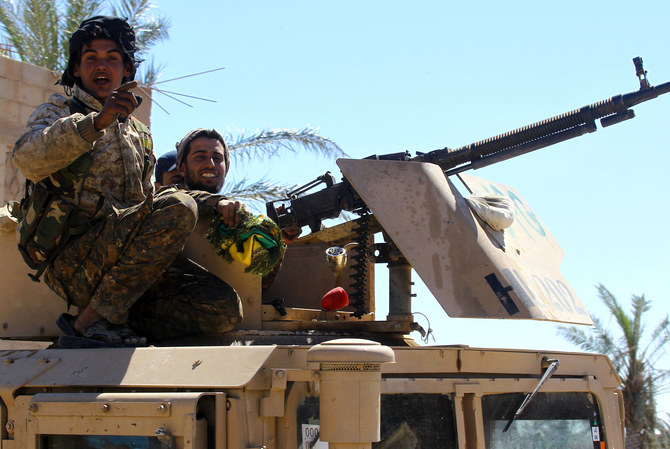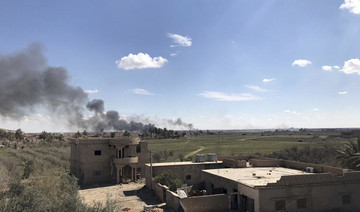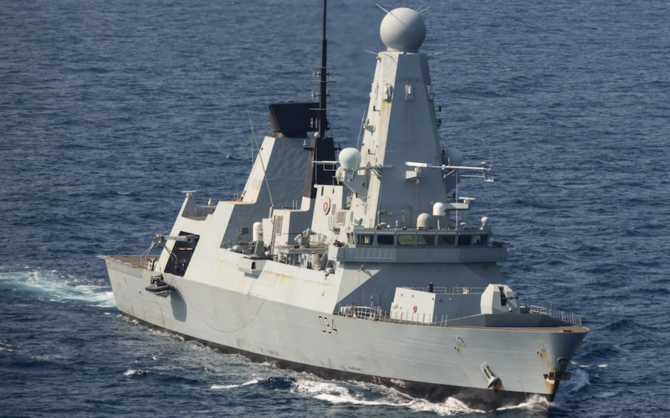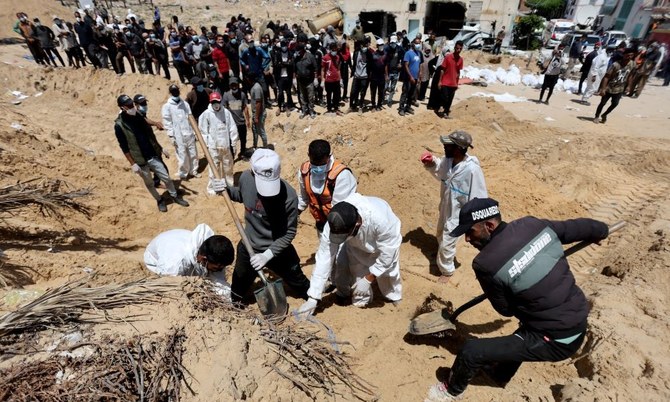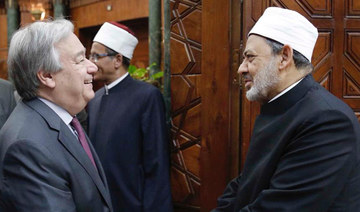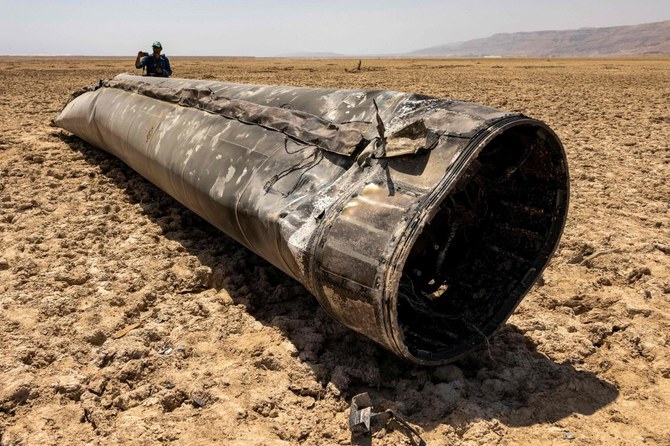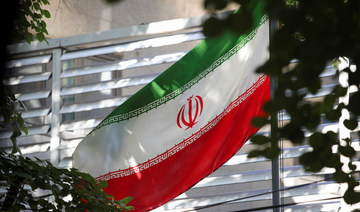DEIR AL-ZOR PROVINCE, Syria: US-backed Syrian forces said they were close to capturing Daesh’s last territorial possession in eastern Syria on Tuesday after seizing the militants’ camp at Baghouz, though clashes continued with some remaining militants.
“This is not a victory announcement, but a significant progress in the fight against Daesh,” said Mustafa Bali, a media official with the Syrian Democratic Forces (SDF) militia on Twitter, using an Arabic acronym for Daesh.
Asked by Reuters how long it would take to defeat the remaining militants, Bali said he expected the operation to end “very soon.”
“The battles are not yet over. There are still some pockets next to the river. Some of the terrorists have taken their children as human shields. There are intermittent clashes,” he said.
The camp was the biggest remaining area held by Daesh in Baghouz, itself the last populated area the militant group held from the third of Syria and Iraq it suddenly seized in 2014.
It has been steadily forced back there after years of retreats in the face of military campaigns by the US-backed SDF, the Russia-backed Syrian army and the Iraqi army with allied Iran-backed militias.
Over recent weeks, as the group hemorrhaged supporters fleeing the besieged enclave, diehard militants mounted a desperate last stand in the battered Baghouz camp, shooting from trenches and sending car bombs against their enemies.
Conditions inside were dire, said people who left, with inhabitants facing constant danger from bombardment and with little food, forced to eat grass. Hundreds of wounded militants were captured when the SDF overran the camp, Bali said.
However, while the capture of the previously unknown village of Baghouz near Syria’s border with Iraq, will mark a milestone in the battle against Daesh, regional and Western officials say the group will remain a threat
Some of its fighters hold out in the remote central Syrian desert and others have gone underground in Iraq to stage a series of shootings and kidnappings.
The SDF earlier on Monday said it had captured 157 mostly foreign fighters as they tracked efforts by militants to break out of the enclave and escape their besiegers.
Both the SDF and the US-led coalition that backs it have said the remaining Daesh militants at Baghouz are among its most hardened foreign operatives.
Over the past two months, more than 60,000 people have poured out of the group’s dwindling enclave, nearly half of whom were surrendering supporters of Daesh, including some 5,000 fighters.
Even on the brink of defeat, the group’s propaganda division continued to function. On Monday night Daesh released an audio recording of its spokesman, Abi Al-Hassan Al-MuHajjer, saying the group would stay strong.
“Do you think the displacement of the weak and poor out of Baghouz will weaken the Daesh? No,” he said.
It also put out a video recording from inside the Baghouz camp, showing fighters shooting out at the encircling forces and a mess of stationary vehicles and makeshift shelters around them.




